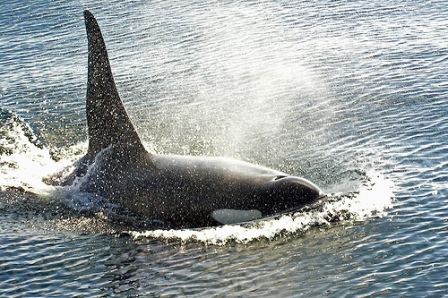Can Tilly Be Released?
Remember Keiko? As you may recall, Keiko was a wild orca who was captured in Iceland in 1979 and sold to a series of aquariums, where he was forced to perform tricks for food. He became sick and severely depressed. In 1993, after the movie Free Willy prompted a call for his retirement, Keiko was moved to the Oregon Coast Aquarium, where he was rehabilitated before being transferred to an ocean pen in Iceland. For five healthy years he lived free near wild orcas, hunting and catching his own food. At one point, he navigated more than 1,000 kilometers of open ocean as he made his way to Norway before dying in 2003.
After the tragic death of a trainer at SeaWorld last month, we called on the park to release Tilly and the rest of the animals the corporation keeps penned up in tiny pools. As a result of our plea, we received calls and e-mails from many people who were all wondering: Is it possible to release a captive animal back into his or her natural habitat?
It’s a good question, and those with legitimate concerns about captive animals’ ability to fend for themselves will probably also ask: Can the risk of failure outweigh the opportunity to experience freedom? And even if there are risks, don’t animals deserve some measure of the freedom they’ve been denied?
Of course, when we talk about releasing the animals at SeaWorld into the wild, they wouldn’t simply be dumped into the ocean. The process would be a considerable undertaking, with marine biologists, animal behaviorists, and scientists involved in the animals’ rehabilitation.
For those sea animals whose health or behavior has been too compromised by having spent years—or decades—in cramped, chemically treated tanks, there’s a humane alternative to outright release. Protected sea pens would allow greater freedom of movement; the ability to see, sense, and communicate with their wild cousins and other ocean animals as well as to feel the tides and waves; and opportunities to engage in natural behavior that they’ve long been denied. At the same time, caregivers would be able to provide food and other needed care.

